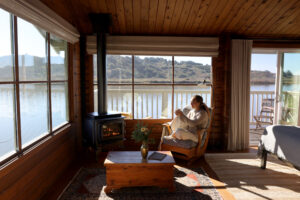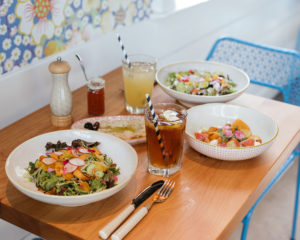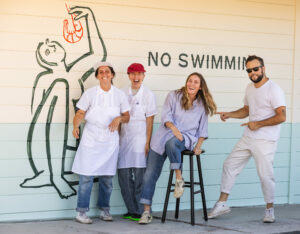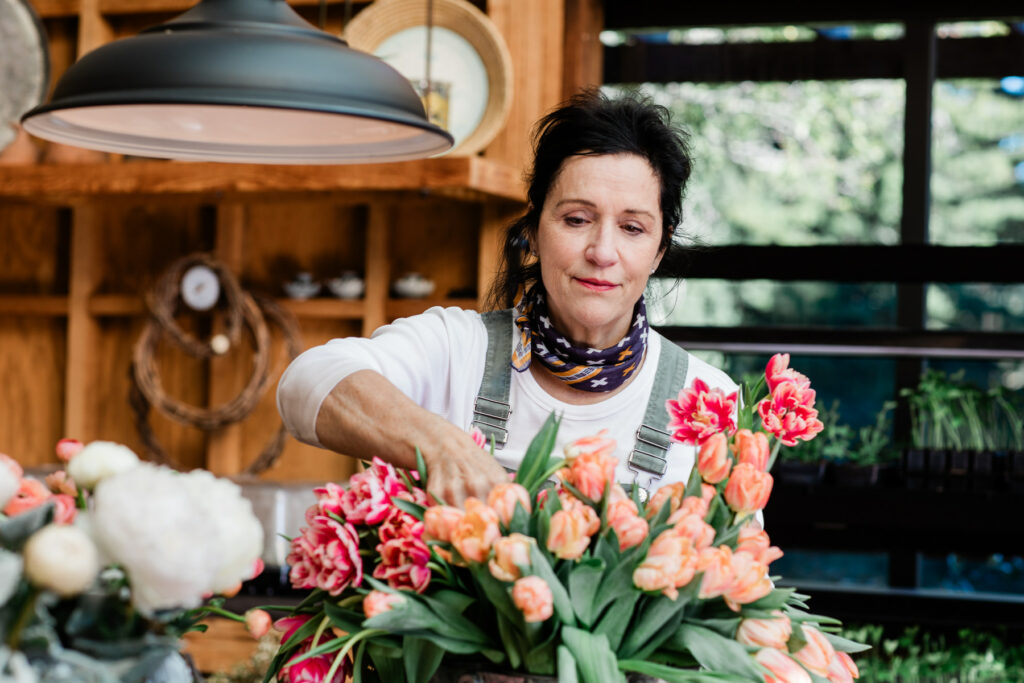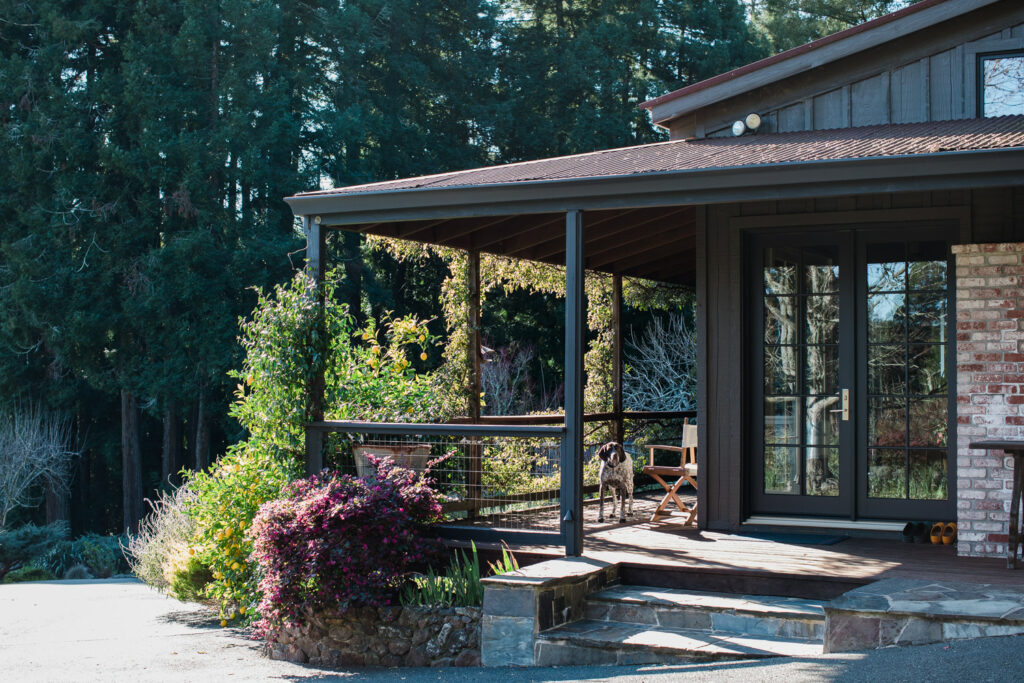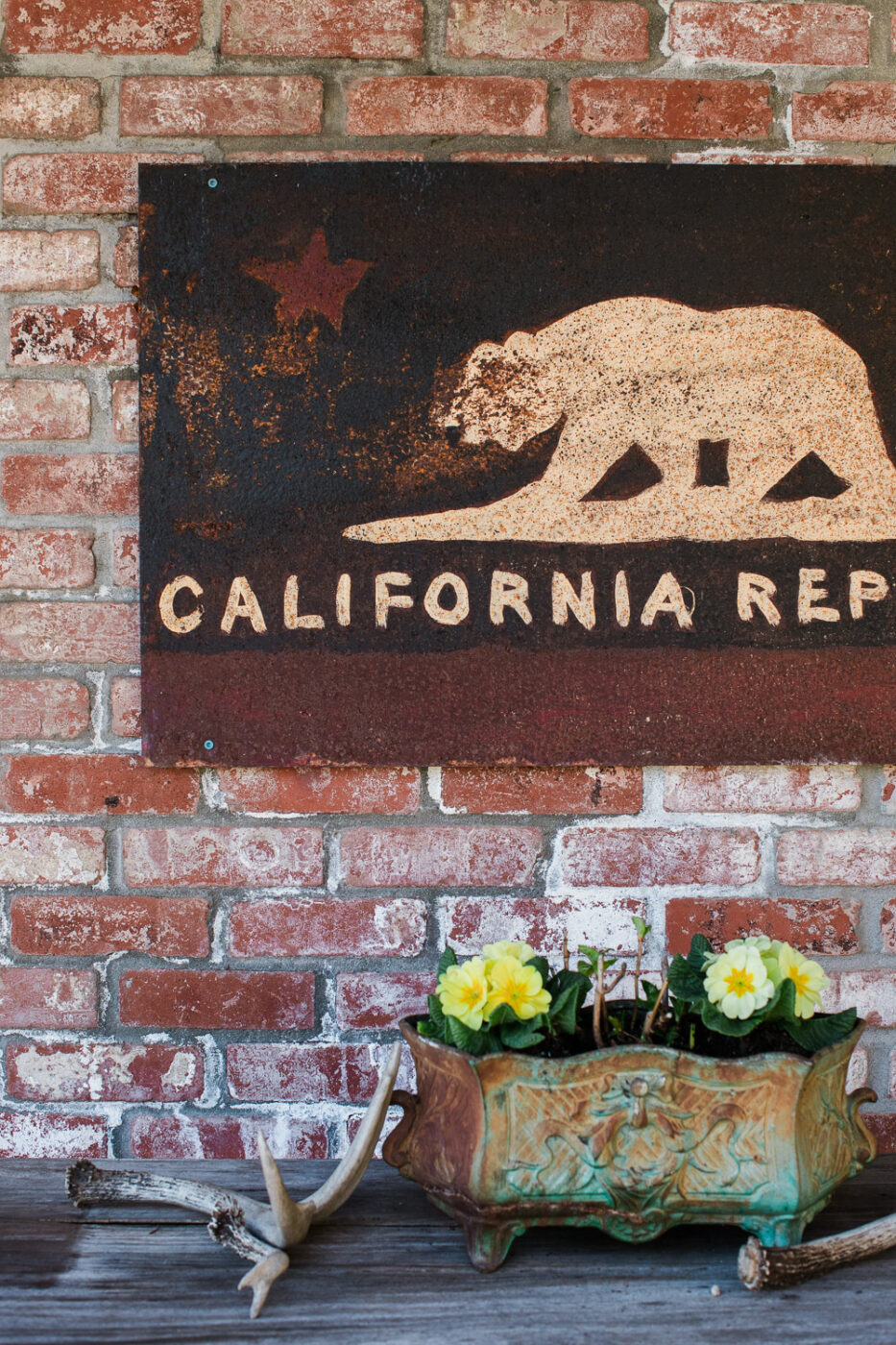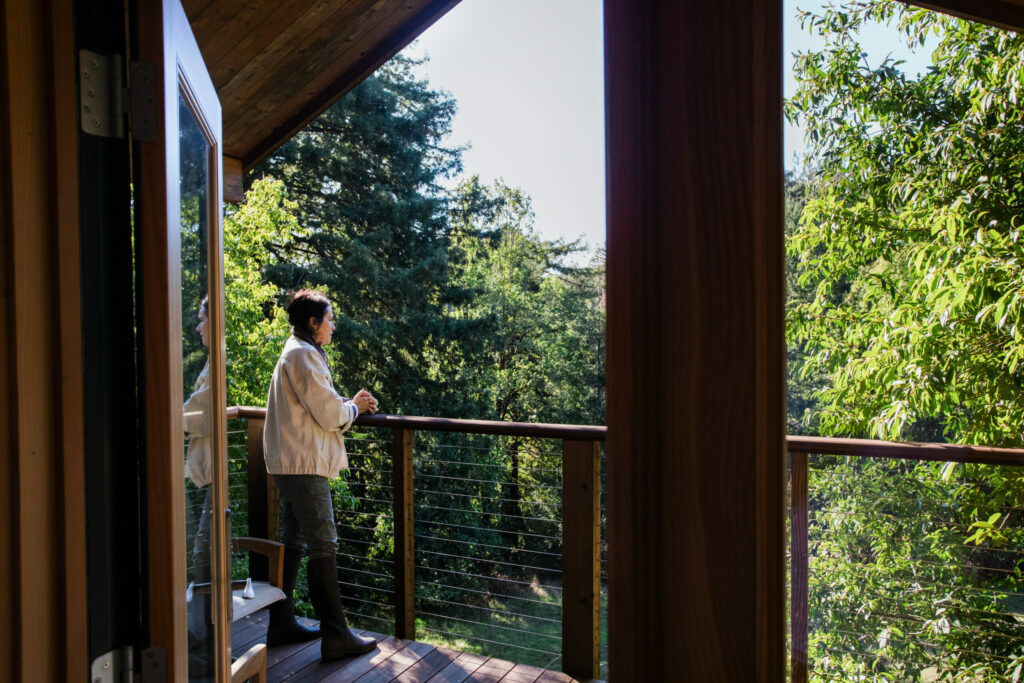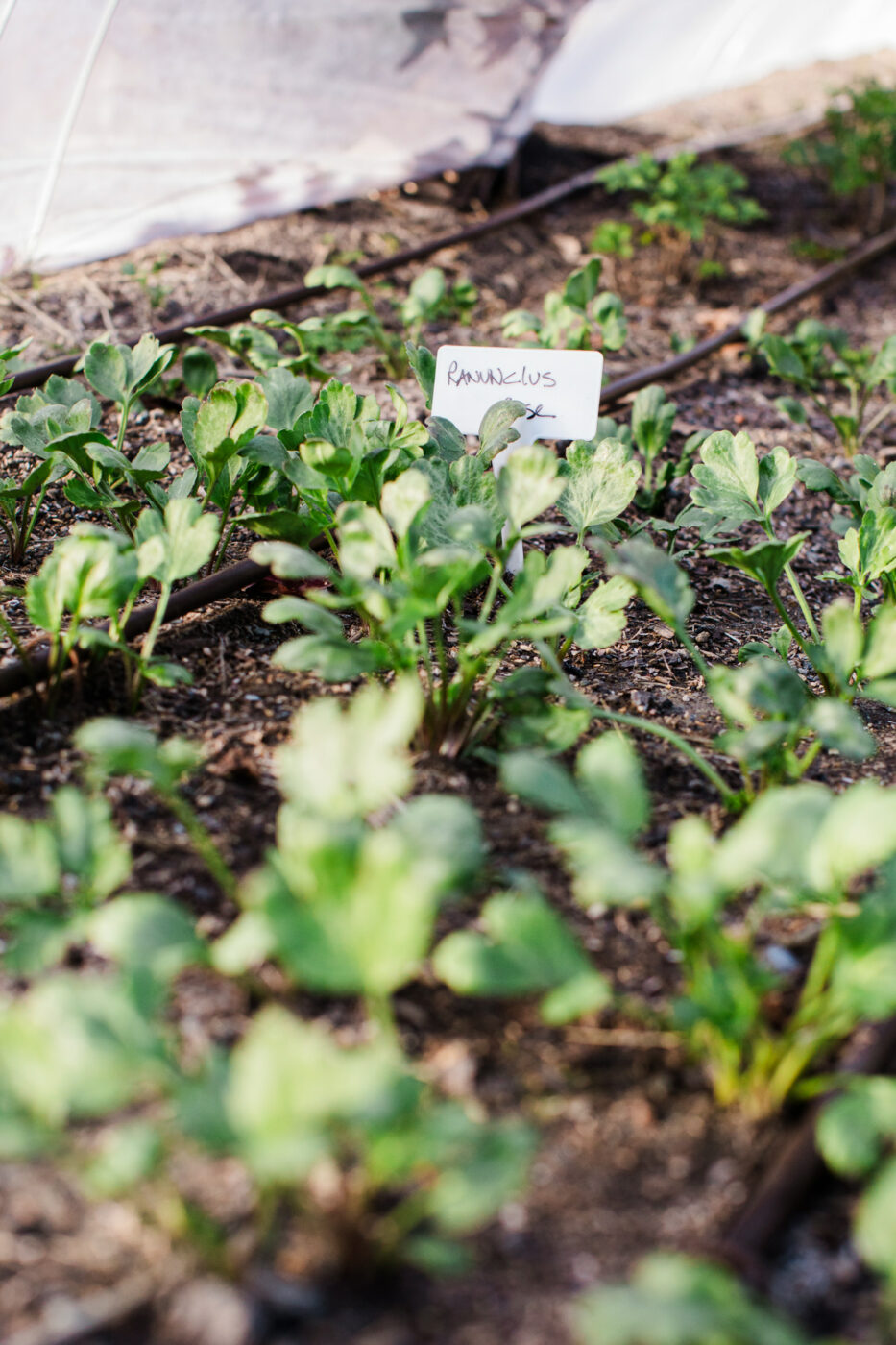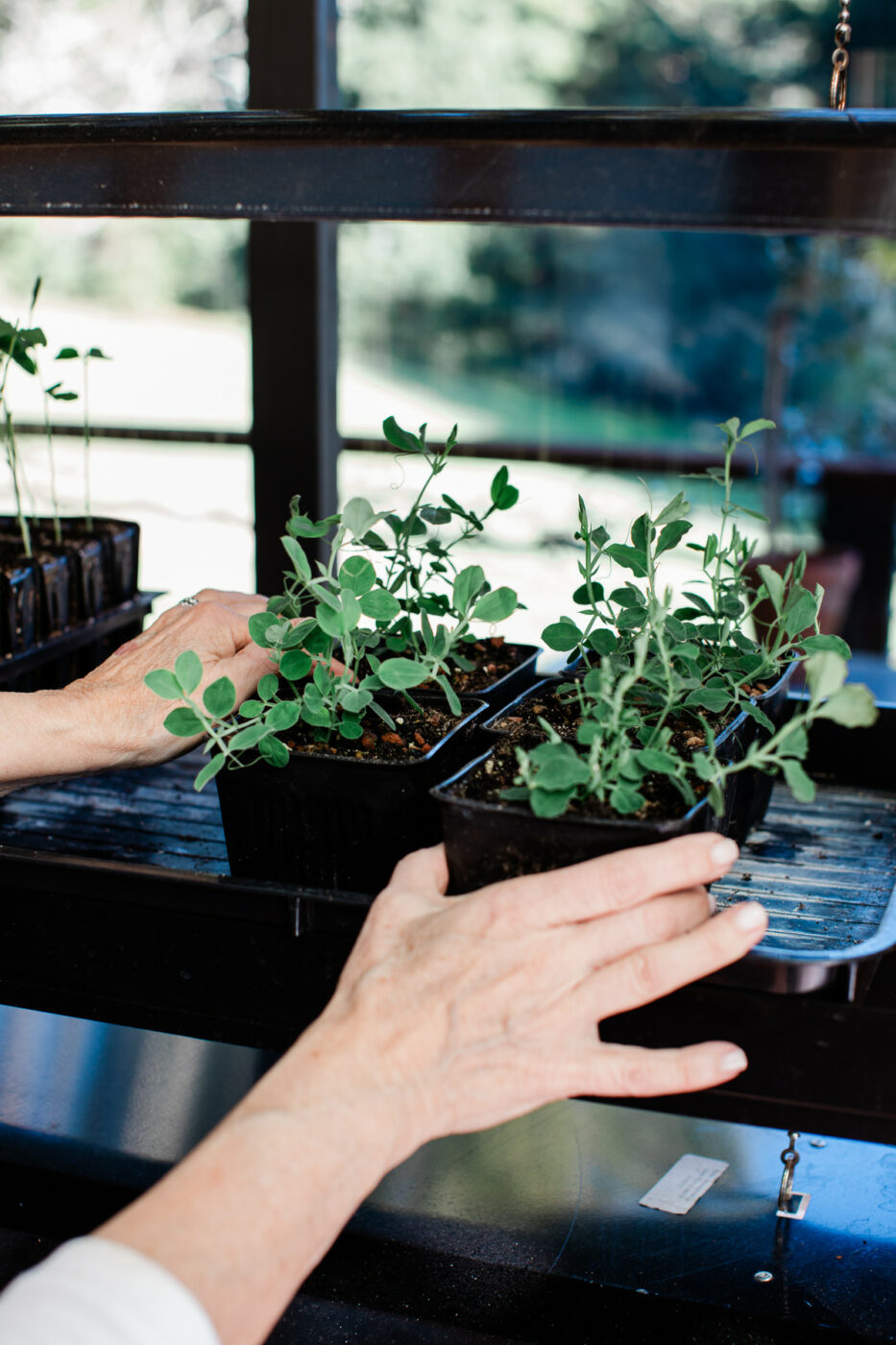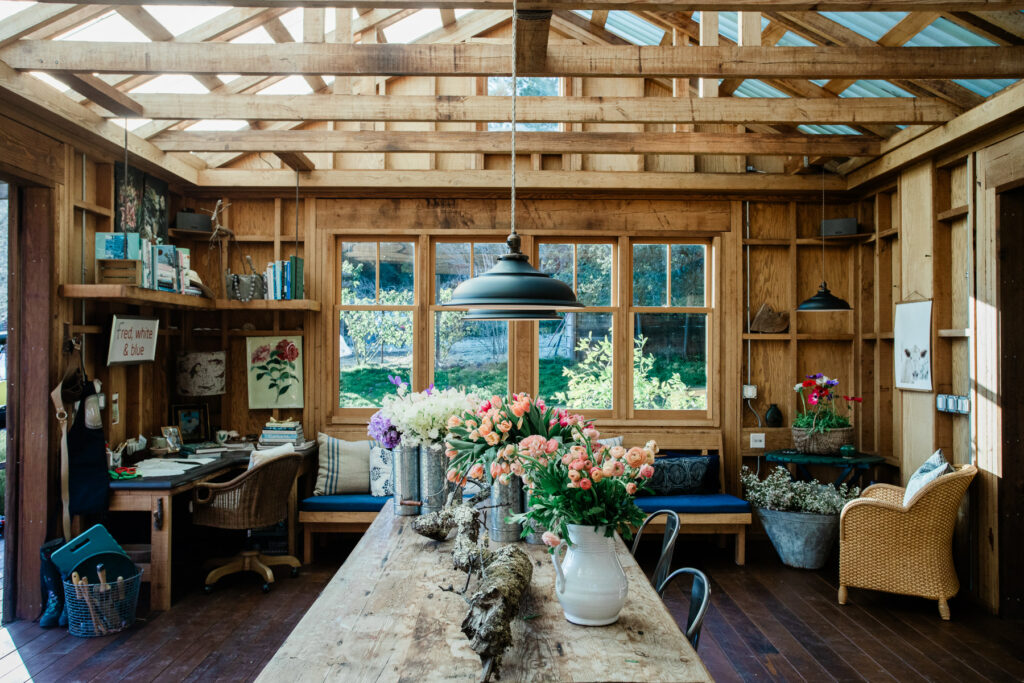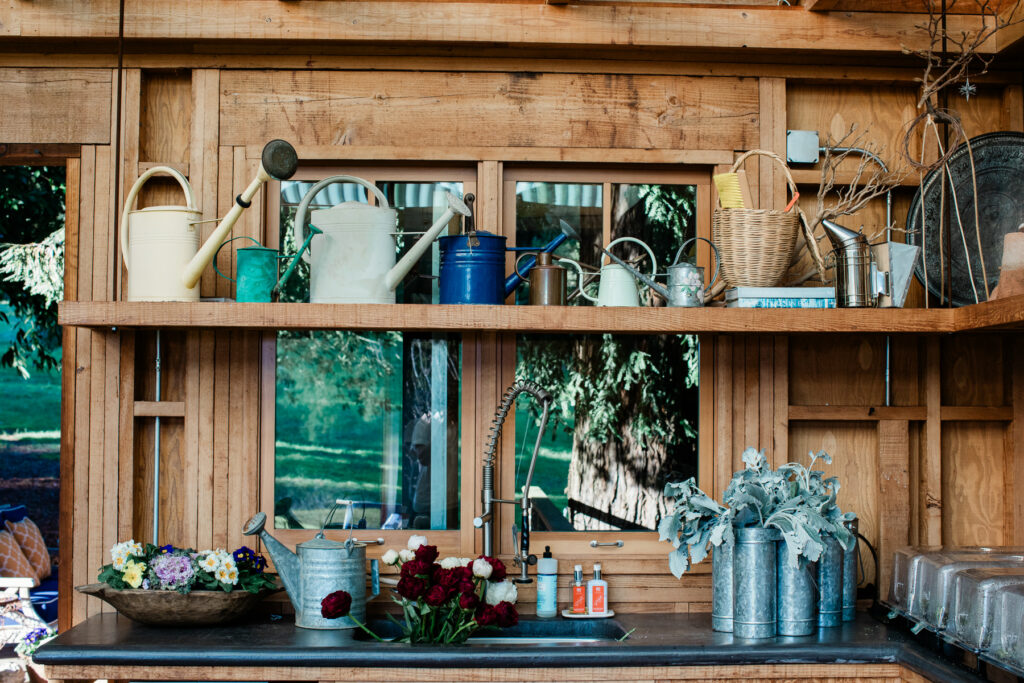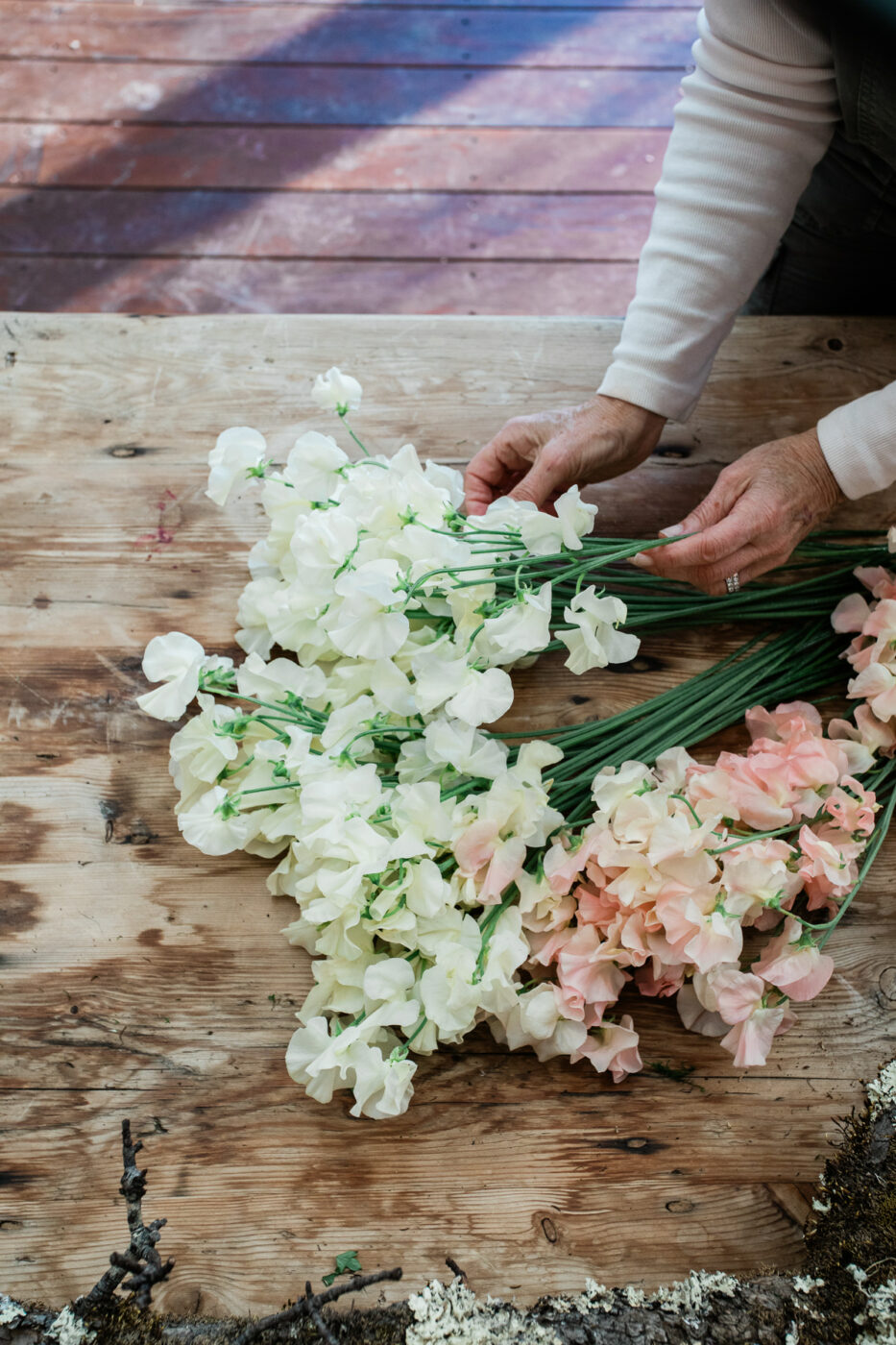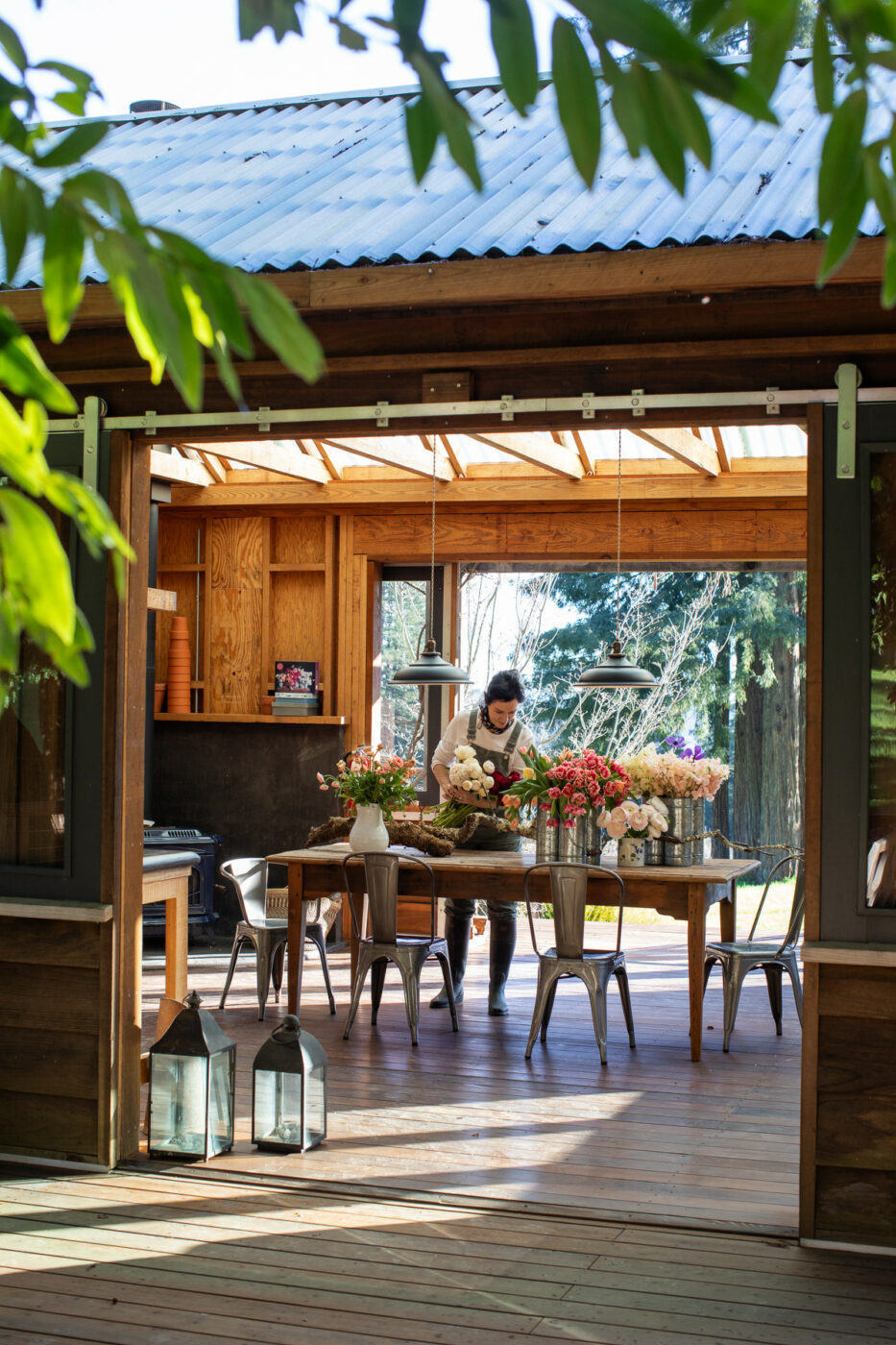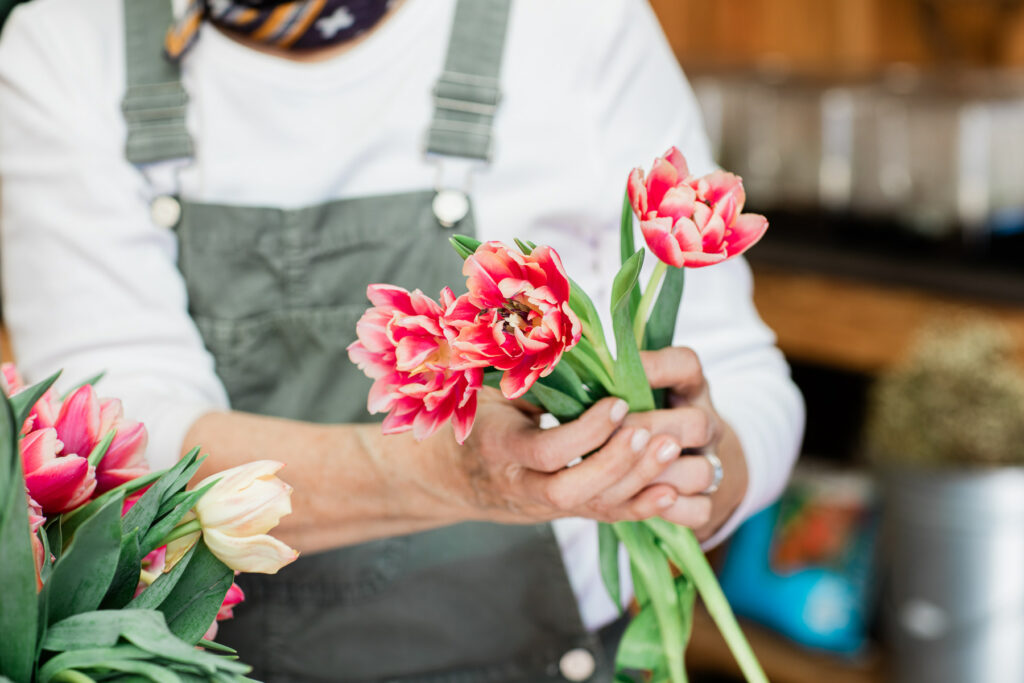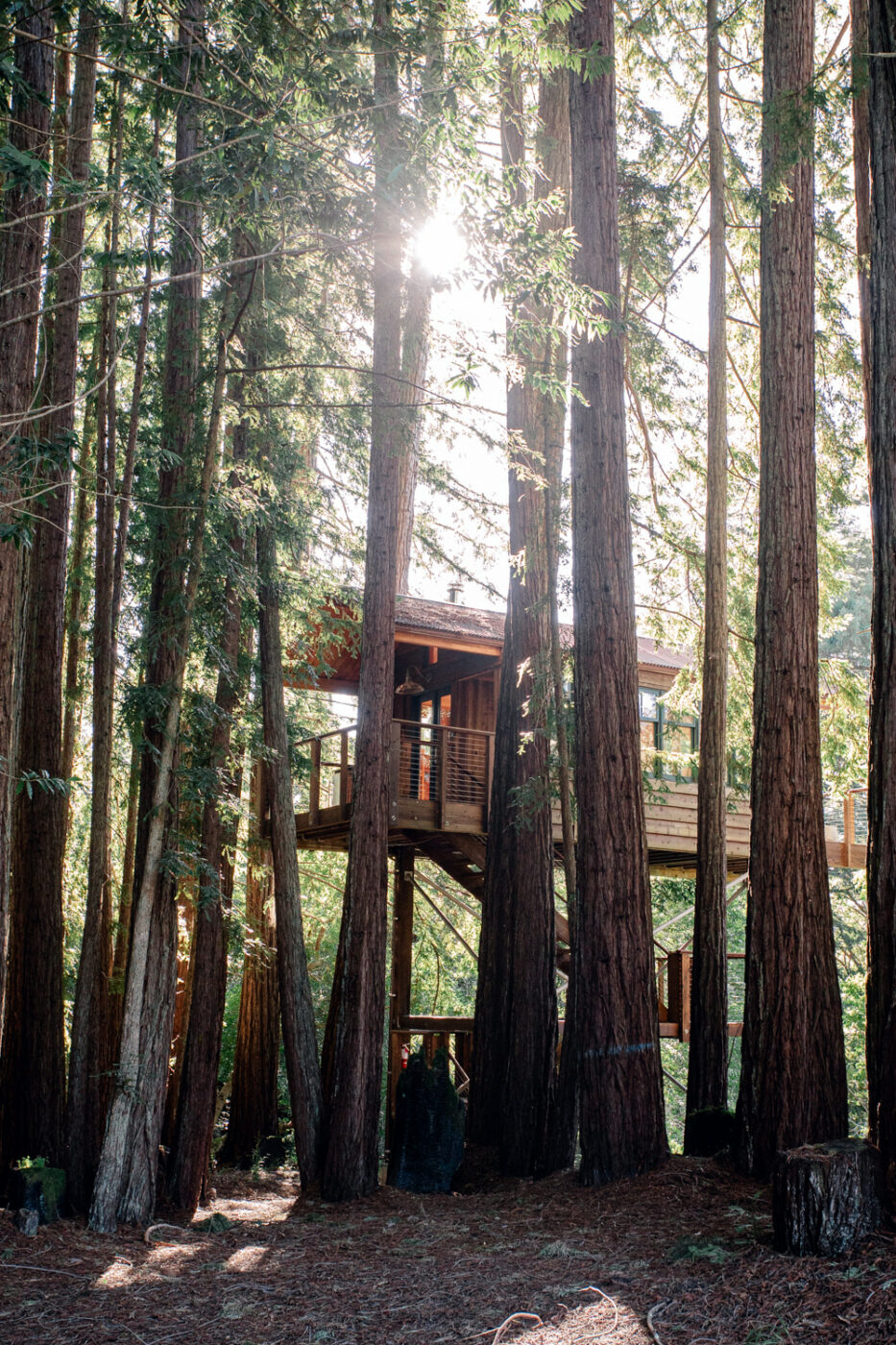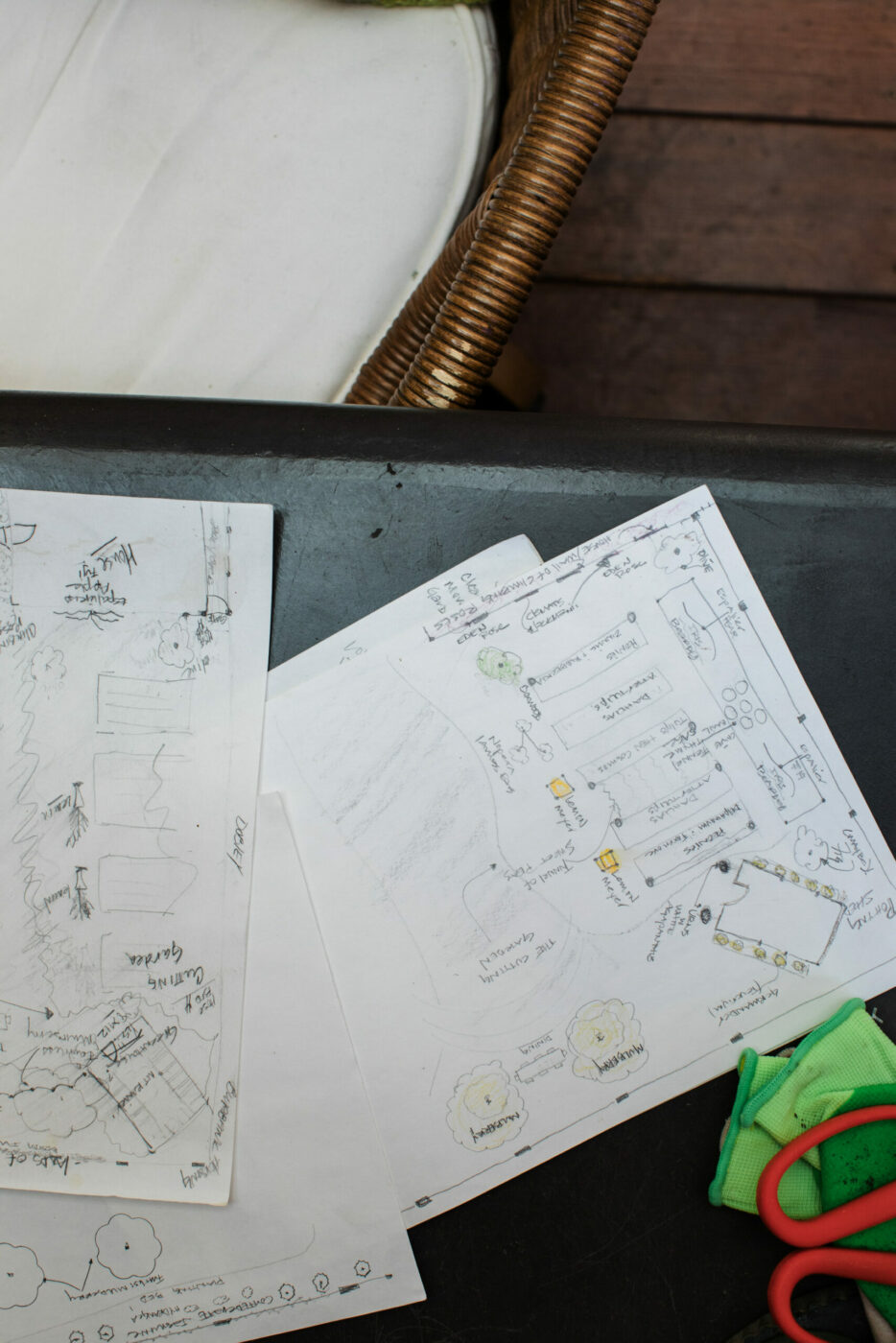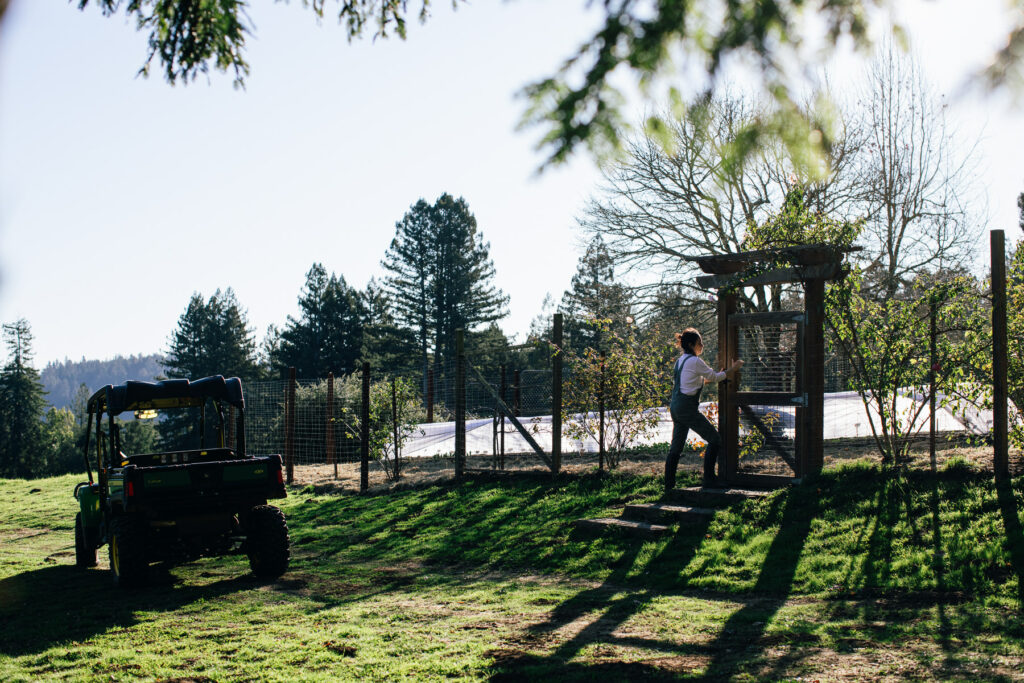On foggy spring mornings, there’s often a small fire burning in the blue woodstove inside Nicole Buttitta’s potting shed on the rural Sebastopol farm she shares with her husband, Fred Reid. The rustic, wood-framed shed, with a clear corrugated roof and big barn doors that slide open onto a small grove of redwoods, was a gift from Fred to Nicole, who met a decade ago in the parking lot of the place where they boarded their dogs. Fred invited Nicole to his family’s farm to exercise their dogs in the fields, and the two ended up walking and talking for three hours. A relationship, one built on a shared love of the land and the outdoors — and of course, on a love of dogs — was cemented that day.
Fred, an airline executive, grew up working in the summer on the 40-acre farm alongside his aunt, who bought the land in the 1960s to raise Black Angus cattle, horses, and llamas and sell Gravenstein apples to the Manzana processing facility in Graton. He inherited the farm from his aunt two decades ago, and over time, rebuilt the old farmhouse to suit the needs of a bachelor with three grown sons. He and Nicole, who also has three grown children, have since adapted the property for the next stage of their lives together, adding new flower fields and a large chicken coop in addition to the potting shed and other outbuildings.
“The shed was born out of my desire to just geek out as a gardener and a flower farmer, but also as a gathering place for family,” says Nicole. “We have these six children together, two daughters-in-law, a couple of grandkids now, and we have big family meals out here.”
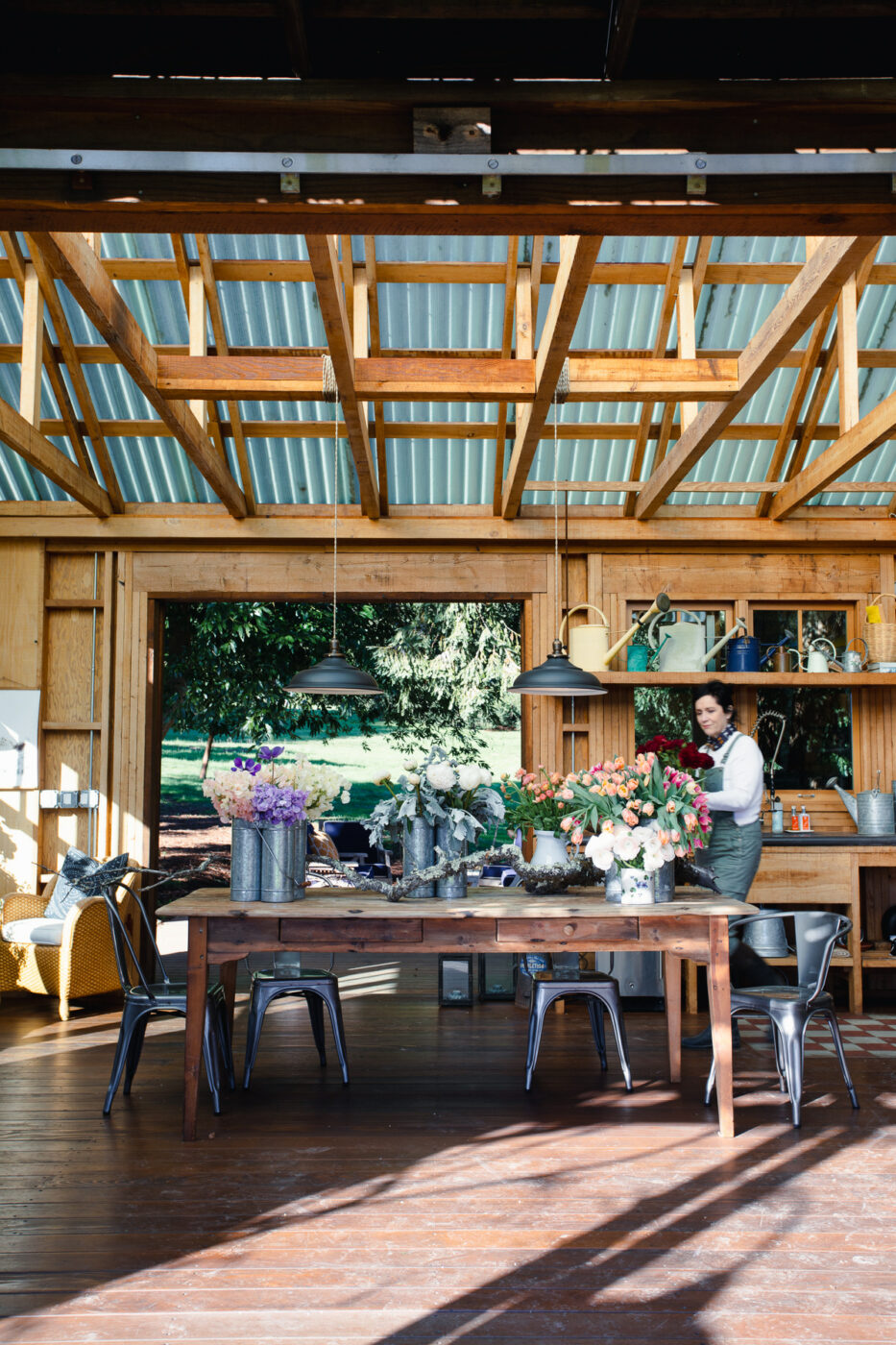
When the couple married in 2017, the band for the reception set up inside the potting shed, and guests danced out on the lawn under the redwoods until late in the evening. The shed has a big table down the center, plenty of comfy places to sit, shelves for gardening books, and built-in storage for vases, watering cans, and other gardening equipment. An upholstered bench pulls out to make a bed for the grandkids, who think it’s an adventure to nap outdoors in summer.
There’s also a big sink and wide concrete countertops for starting seed trays and arranging flowers, features that come in handy for Nicole, who opened Healdsburg’s Maison Fiori, a European-style flower shop, in July 2024. Many of the flowers she sells at the shop are grown at the Sebastopol farm.
These days, the farm is alive with the clamor of spring, including baby birds and possums in the fields, bees buzzing in four hives at the edge of the orchard, and some two dozen laying hens in the coop, which supply Nicole’s Healdsburg shop with fresh eggs.
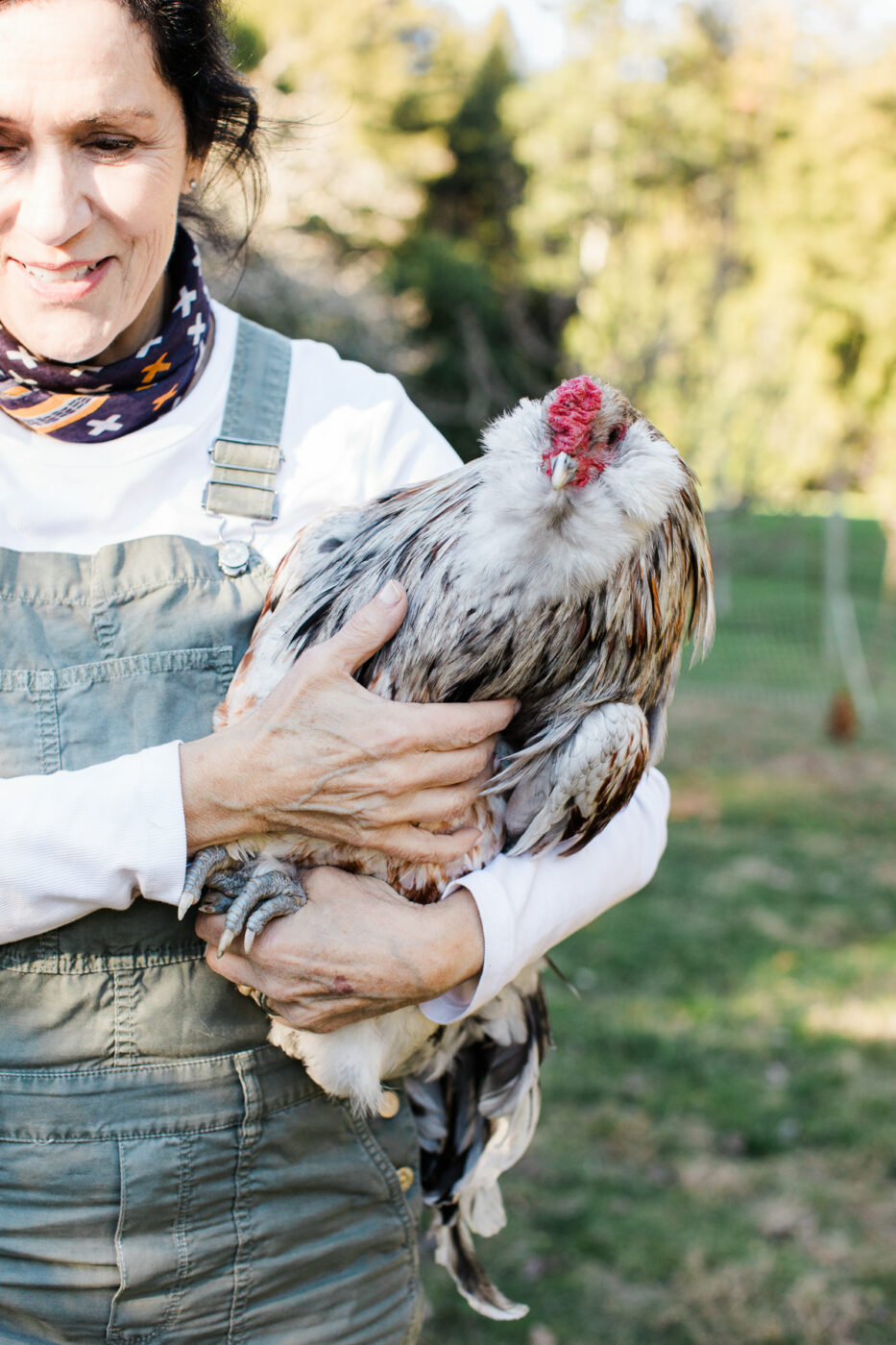
“The fawns come a little bit later in the spring, and we have two wild herons that hunt gophers in the field. I see them almost every day — they’ll tolerate my presence for a bit and then take off in that beautiful slow, sweeping flight.”
Spring on the farm is “energetic,” says Nicole, who says that she and Fred revel in the palette of vivid greens from the grasses and trees and pale pinks from the apple blossoms. In the garden, tidy rows of tulips and daffodils begin to give way to roses and peonies leafing out. When the tulips are spent and ready to be taken out, that’s when the dahlia tubers go into the ground.
“That’s when the work of tending and weeding and composting really starts. You get a sense for what’s doing well, what needs more nutrients, but Mother Nature has her way, and I need to give room to that,” says Nicole. “I do my part, but then nature says ‘OK, my turn now.’”
Both Nicole and Fred say that their relatives, especially Fred’s late aunt, would be pleased to know the land is still in cultivation. Farm to Pantry comes each summer to harvest the Gravenstein apples to distribute to people in need, and Nicole’s flower fields are thriving. “Fred wants to be the best steward of this place,” says Nicole. “He tends this land — he just has this reverence for it. He knows it intimately.”
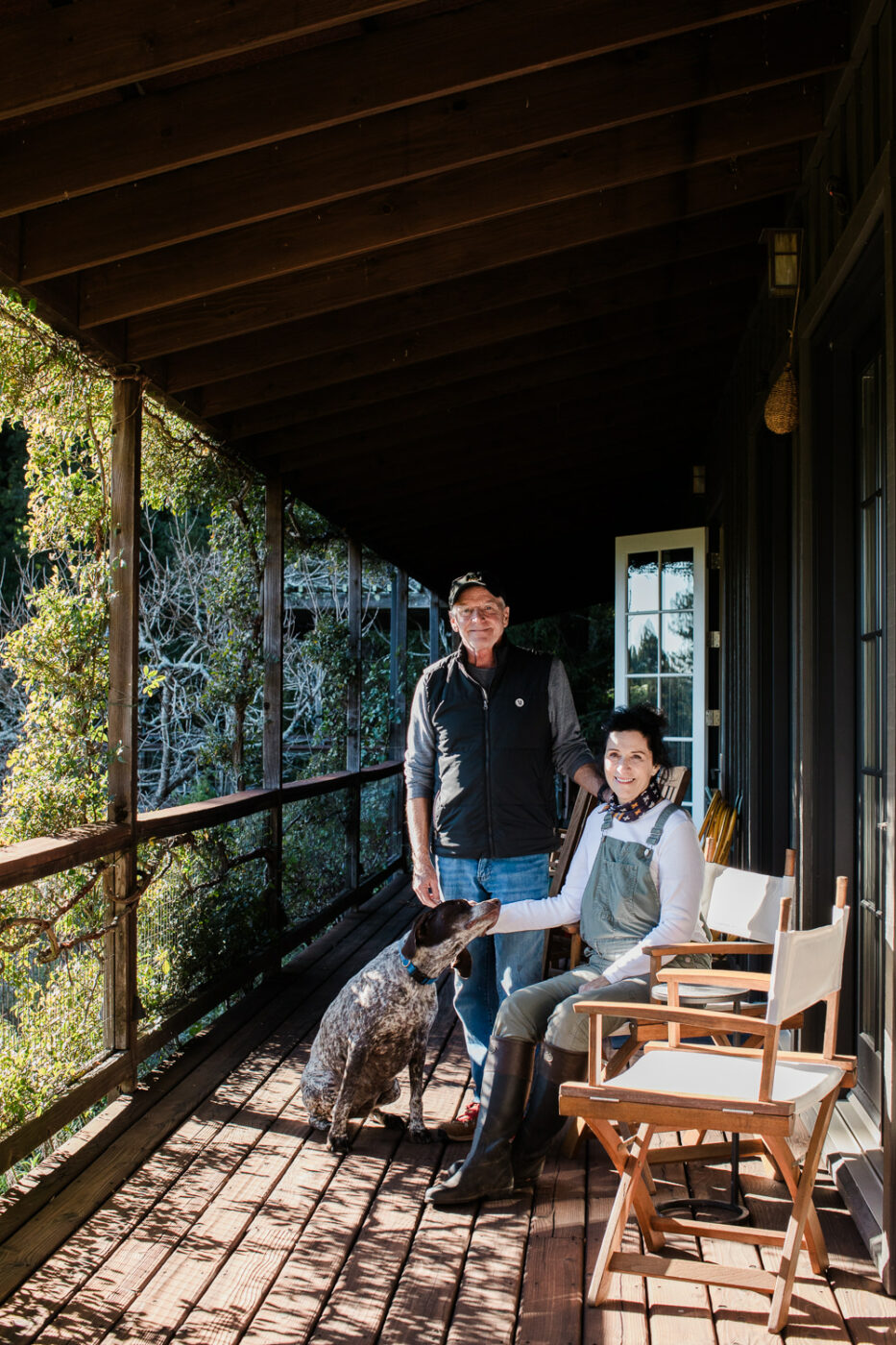
Nicole, the daughter of an immigrant from Sicily who found work as a pruner before starting his own landscape design business, feels the pull of her late father’s lessons. “When we were younger, on the weekends and in the summer, my brother and I were our dad’s garden labor force. I hated it at the time — and look at me now,” she laughs. “I think if my dad had come here, he would have really liked this place.”
Nicole says that the peace they have found there, tending the gardens and orchards has become more resonant this spring. Their son and his family fled wildfire in Los Angeles and moved in with them at the farm for a few weeks in January. Nicole, who lost nearly all of her belongings in a residential house fire in 2009, understands the well of emotions that many Sonoma County locals felt upon witnessing the devastation to the south. “You pick up and put one foot in front of the other, but it still hurts. And every time we smell smoke, we think in a way that people who haven’t experienced a fire don’t necessarily understand.”
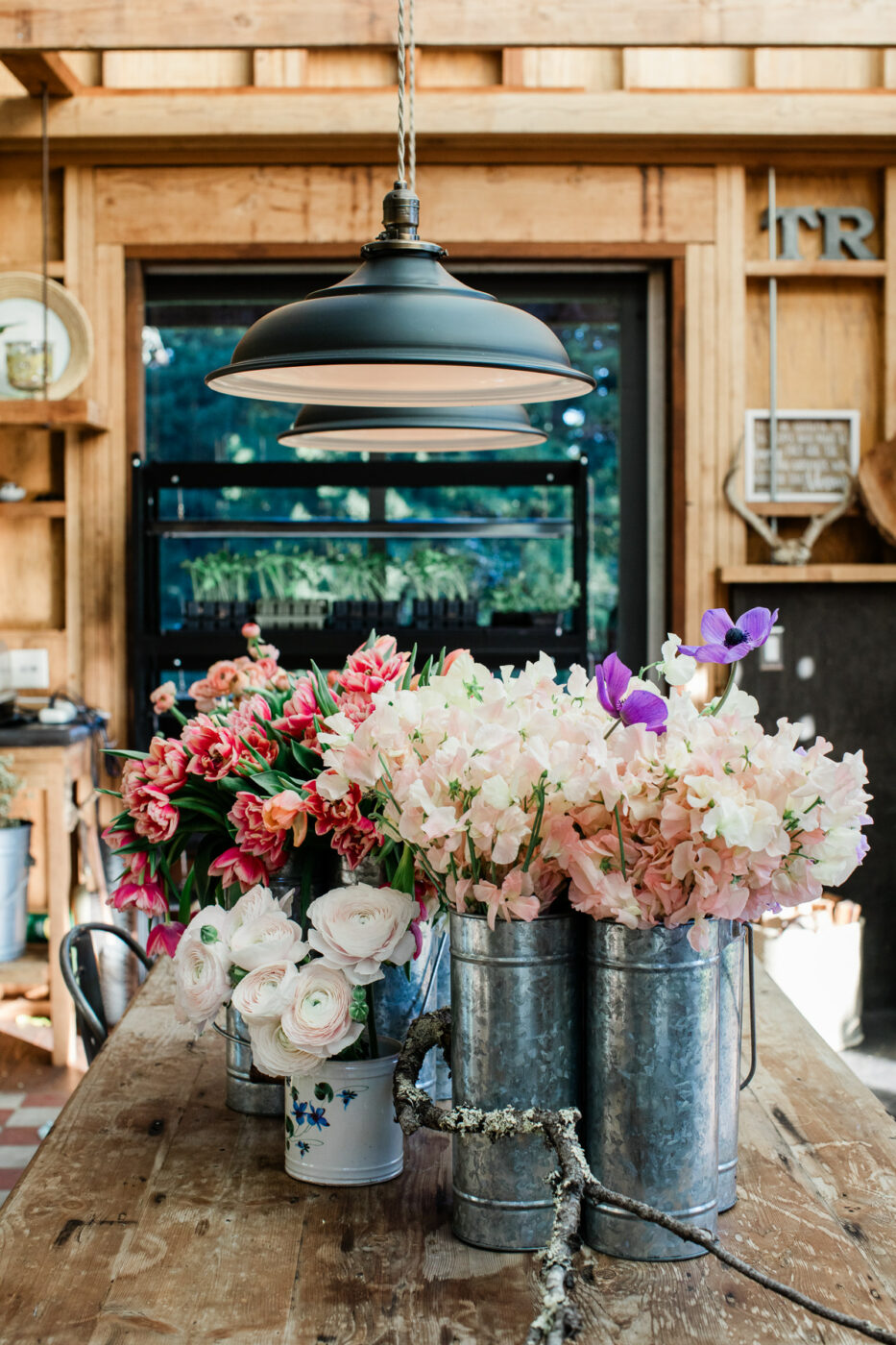
Wednesdays are harvest days in the flower fields to supply hand-tied bouquets for her store. Nicole stages multiple buckets of water the night before so they’re ready to go, and is in the garden by early morning. She pulls her tractor up to the back gate of the flower field and harvests quickly to get the cut blooms out of the sun and into the shop as soon as possible. Farming and running a shop wasn’t necessarily what she imagined for this stage of her life.
“But I love how happy and joyful and excited people get when they see the flowers. People tell me about their gardens, and I answer questions, and that’s been really good,” she says. “As I grow older, instead of life becoming narrower, our life has really expanded in a way I didn’t know it could.”





